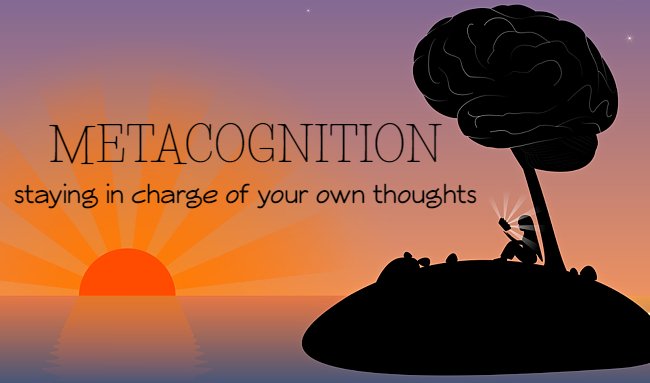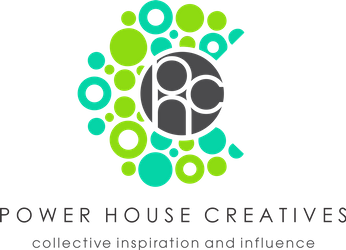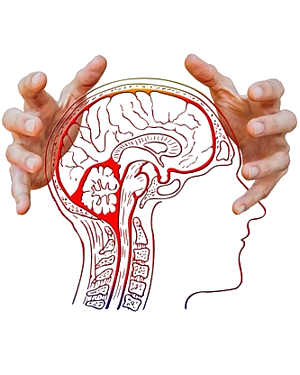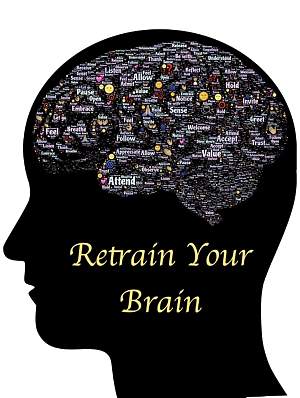Metacognition, often called "thinking about thinking", is you being in charge of your thoughts. You are thinking about your own mental processes and being aware of them. It is the key to better learning and more efficient problem solving just as it is to challenging your beliefs and thinking patterns. It is at the heart of many types of therapy and educational systems because you are reviewing your knowledge about a certain topic, assessing your abilities and predicting the outcome of your actions.
 CC0 image, Pixabay, author: 9, adapted
CC0 image, Pixabay, author: 9, adapted
Cognition refers to thinking. The applications of cognitions are conscious reasoning, interpreting sensory input, empathizing, guiding physical actions etc. Your cognition changes as you gain new experience and when it comes to research, you have to keep in mind that attention, memories, knowledge acquisition and retention, language learning, and logical reasoning all play a vital part in understanding human cognition. Metacognition goes beyond that and deals with knowing why we think or do the way we think or do in a certain moment. It is our mental self-awareness that, if practiced regularly, can be a deciding factor between succeeding or failing at anything. From your psychological health to your job performance, knowing who you are is a strong asset you will benefit from.


Being able to change your thinking means you have to first be aware of it and recognize it. Without having strong self-control, you will not be able to stop your thinking patterns. Self-control is your ability to subdue your behavior, emotions, thoughts, and impulses in order to achieve some long-term goal.
Pre-frontal cortex, an origin of self-control
What makes humans different from the rest of the animal kingdom is our pre-frontal cortex that is larger than in other mammals and the root of our self-control. We do not respond immediately to every impulse but plan instead and evaluate alternative actions to avoid consequences that we would not prefer. Our ability to exert self-control or our will-power is what makes us different from each other and it has been linked time and time again how those with better will-power tend to be more successful in various areas of life.
The most famous study of self-control is known as “the marshmallow test" and was conducted by the Stanford professor Walter Mischel in the 1960s. His team tested hundreds of children around the ages of 4 and 5 years old by giving them a simple choice; have one marshmallow right away or two marshmallows later. They brought the child into a room and put a marshmallow in front of it. The child was told that the researcher was going to leave the room and if the child does not eat the treat, it will be given two treats when the researcher returns. If it eats it, it would not receive the second one. Some children ate the marshmallow as soon as the researcher left the room, some were fidgeting in their seats for a while before eating it, and some waited until researcher came back after 15 minutes and got to eat two treats. The most interesting part of the study came years later.
The researchers followed each child for more than 40 years, tracked each child's progress in a number of areas, and conducted follow up studies. What they found was that children who were willing to delay gratification (had more self-control), were better at responding to stress, had lower levels of substance abuse and likelihood of obesity, had better social skills, and ended up having higher SAT scores. The conclusion of the experiments is that the ability to delay gratification was critical for success in life. Here are the links to those follow-up studies:
Delay of gratification in children by Mischel W, Shoda Y, Rodriguez MI.
The nature of adolescent competencies predicted by preschool delay of gratification by Mischel W, Shoda Y, Peake PK.
Predicting Adolescent Cognitive and Self-Regulatory Competencies From Preschool Delay of Gratification: Identifying Diagnostic Conditions by Mischel W, Shoda Y, Peake PK.
Can will-power
be influenced by the environment?
According to researchers at the University of Rochester, yes it can. They replicated "the Marshmallow experiment" but added the environmental factor. They split the children into two groups and exposed them to a series of unreliable and reliable experiences. If a child was from the first group, they would first give it a small box of crayons with a promise they would bring a bigger one but didn't and they gave it a small sticker with a promise to get a better one but didn't. Children from the second group received what was promised. When the actual "marshmallow test" came, the second group waited an average of four times longer than the first group.
This happened because children from the first group had no trust in the researcher who failed to keep his promise in the last two times he made it while the children from the second group registered that waiting for gratification is worth it. The conclusion is that your will-power is greatly impacted by your previous experience and can be influenced. The level of your self-control is not a predetermined trait and can be changed. The research is available here:
Rational snacking: young children's decision-making on the marshmallow task is moderated by beliefs about environmental reliability by Kidd C, Palmeri H, Aslin RN.
Train yourself to become better
You can retrain your mind to develop a more positive mindset and become better at self-control. All you have to do is be consistent with making small improvements until "it sticks". Repetition is how we learn and remember things. Your ability to delay gratification can be trained to become stronger if you apply positive reinforcement and have small goals, so small that you are sure to achieve them. Increase your goals gradually until your brain becomes confident that you do have self-control and no problem with rethinking a certain action or a thought.
The reason why self-control is crucial for metacognition is because it stops our thinking momentum. It allows us to stop in the middle of our thinking and prevents us from continuing on the negative or incorrect track. Being able to reason with yourself and correctly evaluate your abilities and conclusions about yourself can save you hours of work, improve your relationships, self-esteem, and strengthen an overall ability to improve in all areas of life. "Why am I thinking this?" needs to be your most important question to ask.


The "meta" part in the word metacognition refers to higher-order cognition about cognition. It is thinking about thinking and it has two dimensions: metacognitive knowledge and metacognitive regulation.
Know your cognitive abilities and control them
Metacognitive knowledge means that you are aware of your cognitive abilities (how much you know about a certain task, your knowledge of different strategies and when to use them, your strong opinions about different topics etc.). Metacognitive regulation, on the other hand, deals with your ability to monitor and control your cognitive process. It is about realizing that a certain strategy does not work and choosing another. The simple way to understand this is with the example of reading. You first read a part of the text (cognitive or object level), then you stop and check if you understand before deciding to continue or read again. That monitoring of your cognition and control of it by deciding to re-read is the meta level. Another example would be having a strong opinion about how to react around a certain group of people. Stopping before reaction and thinking if that is the right approach and concluding that either it is or either it isn't (based on previous experience and data predicting the future ones) is metacognition. Self-assessment and talking to yourself (inside or outside voice depending on the situation) are ways to do it.
The benefits of metacognition are extraordinary. Metacognition will help you take control of your learning in a way that your reading, writing, and solving tasks will improve. It may even compensate (to some degree) your cognitive limitations because it will contribute to learning above the influence of intellectual ability. Not only does metacognition improve your reading and text comprehension, writing, math, reasoning, problem-solving, and memory it also helps in transferring what you have learned from one context to another. It strengthens your ability to connect things. If you are a teacher or a tutor and are interested in what role metacognition plays in education and school environment, I suggest you read an article about metacognition from Cambridge University and a research about improving metacognition, here are the links:
Metacognition from cambridgeinternational.org
Strategies for Improving Learner Metacognition in Health Professional Education by Melissa S. Medina, EdD, Ashley N. Castleberry, PharmD, MAEd, and Adam M. Persky, PhD


Being overconfident and good at metacognition are two things that do not go well together. Metacognition is all about questioning yourself while your overconfidence will prevent you from doing that. Being confident about your action or conclusion is a good thing but only if it comes after metacognition, not before. The order of those things is important.
Do not give an answer before
you have asked the question
All of us (some more frequently than others) tend to overestimate our knowledge and/or abilities. We give conclusions without asking ourselves how did we get to those conclusions. There is a difference between objective and foolish confidence, one comes after and the other comes before metacognition. Re-evaluating our set of skills and thinking patterns is crucial to any progress and making the right decision about anything. Questioning ourselves is important and paves the way to new discoveries and improvement.
In conclusion, being able to stop in your thoughts, evaluating why are you thinking them, and deciding if you need to change them or not is practicing your metacognition. To be able to do that, you will need to have a certain level of self-control and the ability to delay gratification. You may have a need to do something, say, or think something but you will benefit from asking yourself the "WHY?" question. When you answer it, ask that question again and then again until you come to the root of the cause behind your action or thinking pattern. You will benefit greatly from getting to know yourself better. From academics to social relationships and self-growth, knowing who you are and why, will improve every part of your life because you will be able to change or adapt and become a better and happier person.
If you are interested in learning more on this subject, check out these REFERENCES:

Until next time,
KEEP YOUR SMILE ON!



Image sources AND LICENCES in order of appearance:
- all images used in this post are free for commercial use, they are royalty free with the links to original images provided under them
- titles are made with the CC0 image from Pixabay that can be found here
- line divider that I use is from FREE CLIPART LIBRARY, and is here
- my bitmoji avatar was created on https://www.bitmoji.com/, visit the site to create yourown
PROUD MEMBER OF:





 CC0 image, Pixabay, author: 9, adapted
CC0 image, Pixabay, author: 9, adapted



















This post has been voted on by the SteemSTEM curation team and voting trail in collaboration with @utopian-io and @curie.
If you appreciate the work we are doing then consider voting all three projects for witness by selecting stem.witness, utopian-io and curie!
For additional information please join us on the SteemSTEM discord and to get to know the rest of the community!
Thank you for our amazing support! 💚💚💚
I think this is the most difficult skill in life.
How many times have I wished that I could think before acting? Resist the emotional impulse in favour of rational thinking.
And yet, changing mental attitude is so so hard...
Posted using Partiko Android
Oh @irelandscape, it can get hard, especially if we are emotionally invested with certain actions and thoughts and consider them part of our being. A character is nothing more than actions and opinions that have been repeated over and over until they stuck :D It is a continues work to improve ourselves, some days are easier and some days we completely blow it but the point is to keep working and as often as we can, have a good conversation with ourselves ;)
Yeah @riverflows, meditation does help and so does practice. Big results do not come overnight but little ones do and that is the whole point, to take baby steps. No matter how small a step is, it is progress and little by little, we become better people.
Much love and enjoy your weekend lovely people! 💚💚💚
upvoting your comment since Your post is past payout :( Well written and researched!! sharing to twitter right now!
Meditation. Practice. Once you rewire it's hard to go back.
Posted using Partiko Android
Oh I LOVE the marshmallow test, especially the videos of it. The kids are just so funny.
Metacognition should be taught as a school subject. I think the students would love it... they love finding out about themselves. And we would likely have a better world.
Of course, I'd want to include a unit on what philosophies thought about thought. And Patanjali, Buddha et all. They were pretty good at that stuff.
Posted using Partiko Android
Yeah, they are simply adorable, I can not watch those videos without smiling. You can see how they are fighting inside and trying not to eat it :D
I agree that schools should have a subject about how to study and how to think, imagine how better their results would be if someone encouraged them to use metacognition more. Enjoy your weekend honey! 💚
I love this. I want to add one of my favourite texts that says, "Be transformed by the renewing of your mind." It is so powerful to think about it and I am working hard to implement it!
It is nice to hear that you are working on it and that really is a nice sentence to have in mind. 💚
They don't say patience is a virtue for nothing😉
Posted using Partiko Android
Hi @zen-art!
Your post was upvoted by Utopian.io in cooperation with @steemstem - supporting knowledge, innovation and technological advancement on the Steem Blockchain.
Contribute to Open Source with utopian.io
Learn how to contribute on our website and join the new open source economy.
Want to chat? Join the Utopian Community on Discord https://discord.gg/h52nFrV
you are right we have to careful of the voices we listen too...
love your little avatars.. :)
Congratulations! This post has been chosen as one of the daily Whistle Stops for The STEEM Engine!
You can see your post's place along the track here: The Daily Whistle Stops, Issue 381 (01/25/19)
This is so fascinating - and something I've never heard about before. I've always thought I had very strong will power, but now that I think about it (!) I do have very strong will power when I apply that skill, but I often talk myself out of it. For example, "Actually it's best if I eat that marshmallow now, because then I'll have a longer time to digest it before bedtime..." So you're absolutely right - will power is mostly about practice and training.
This seems really interesting! Can you give an example of a situation in which metacognition has helped you? Just to get an idea of when to use it. Meanwhile, I'll make sure to practice it.